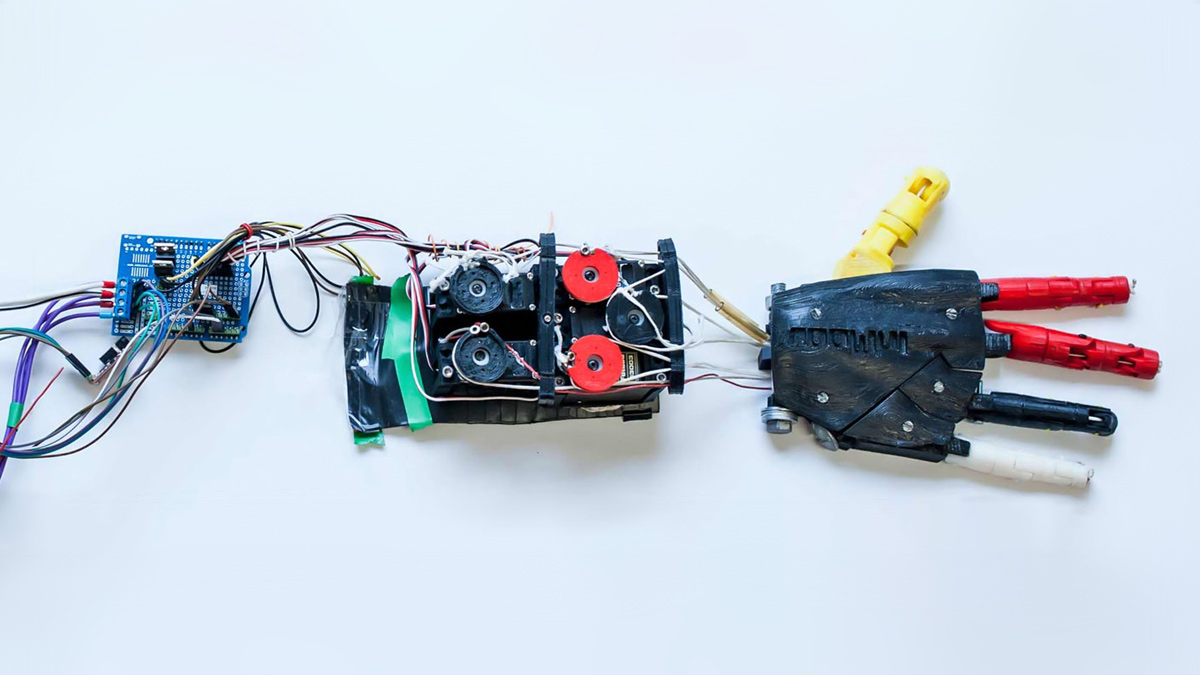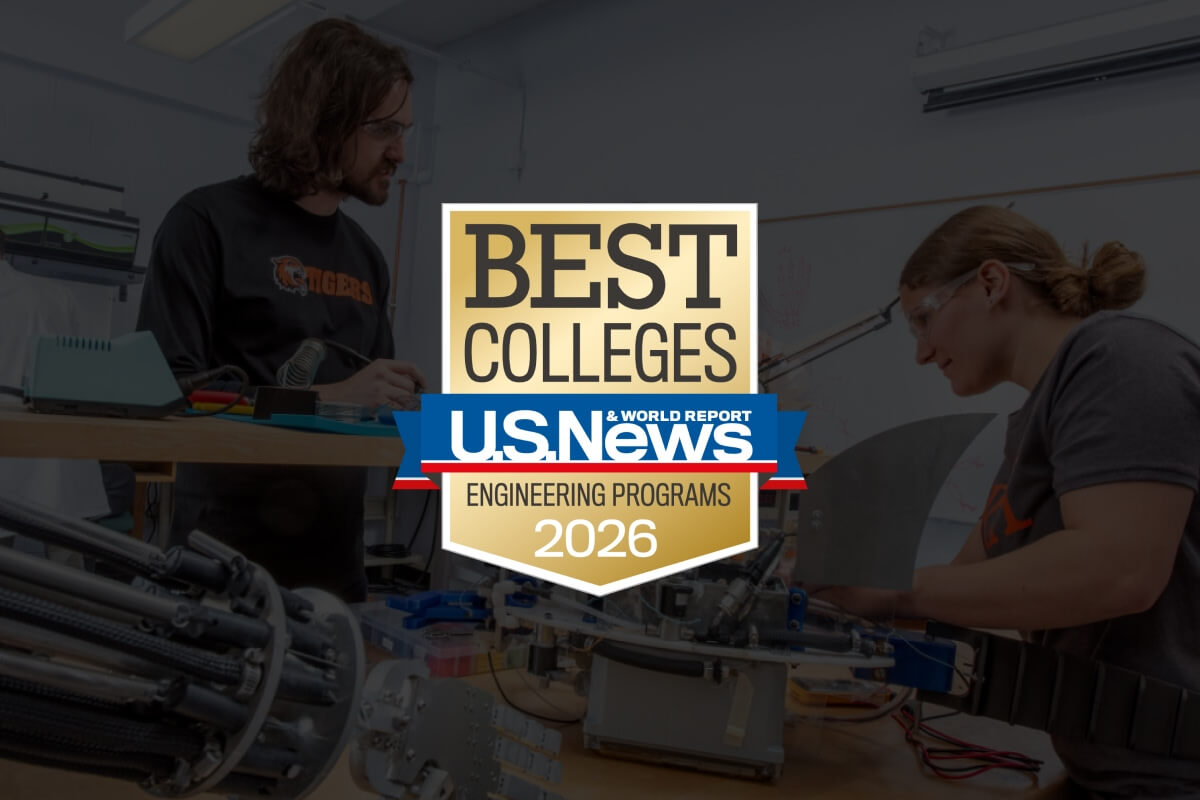Bioengineering Option - Mechanical Engineering BS

Bioengineering Option
Mechanical Engineering BS
- RIT /
- College of Engineering /
- Academics /
- Bioengineering Option - Mechanical Engineering BS
Bioengineering is the application of engineering fundamentals to the principles of biology, the life sciences, and the physical sciences.
Overview for Bioengineering Option - Mechanical Engineering BS
Why Study Bioengineering at RIT?
Hands-On Experience: Obtain valuable employment experience in the field of bioengineering by participating in a co-op.
Exciting Capstone Learning Experience: Complete a design project that focuses on solving or advancing an aspect of bioengineering.
Pre-Health Advising Program: Receive guidance to become a competitive candidate for graduate school admission in the medical and health professions.
Pre-Med/Pre-Health Advising Program: Receive personalized guidance to become a competitive candidate for admission to medical schools and graduate programs in the health professions.
STEM-OPT Visa Eligible: The STEM Optional Practical Training (OPT) program allows full-time, on-campus international students on an F-1 student visa to stay and work in the U.S. for up to three years after graduation.
Bioengineering applies engineering fundamentals to the principles of biology, the life sciences, and the physical sciences. The result is the creation of advanced solutions to some of the most pressing biological challenges, from the environment, agriculture, and genetic engineering to pharmaceuticals, medicine, and health care. This option is part of the mechanical engineering BS degree.
Bioengineering Courses
RIT's mechanical engineering BS in bioengineering begins with a course sequence that starts in the third year of your mechanical engineering program. This ensures that you have developed the foundational mechanical engineering skills needed for specialization in more advanced coursework that focuses on the principles and dynamics of bioengineering. Bioengineering courses include an introductory course (Contemporary Issues in Bioengineering) followed by courses in areas such as fluid mechanics, biomaterials, biomechanics and biorobotics, biomechatronics, and more.
Multidisciplinary Senior Design
Multidisciplinary Senior Design is a two-course sequence in your final year of study. It’s a capstone learning experience that integrates engineering theory, principles, and processes within a collaborative team environment. Multidisciplinary student teams follow an engineering design process, which includes assessing customer needs, developing engineering specifications, generating and evaluating concepts, choosing an approach, completing systems and subsystems designs, and implementing the design to the extent feasible, for example, by building and testing a prototype or implementing a chosen set of improvements to a process. You’ll apply the knowledge you have learned in the classroom and from your co-op experiences to this design project. Students in the bioengineering option are expected to work on a design project that focuses on solving or advancing an aspect of bioengineering.
Pre-Med/Pre-Health Advising
RIT’s Office of Pre-Health Advising offers an advising program that’s open to all majors and provides personal, individualized academic counseling to help you create a comprehensive long-term strategy to assist you in building successful applications to medical, dental, and veterinary schools or graduate degrees in the health professions (e.g., occupational therapy, physical therapy, etc.). Our pre-health advisors will have in-depth conversations with you around critical topics that include academic planning and course selection, MCAT and other admission exams, undergraduate research opportunities, clinical experiences and field work, timelines, and much more. Learn more about pre-med/pre-health advising.
-
#57 Best Engineering Undergraduate Programs, 2026
RIT’s engineering majors are ranked among the Best Undergraduate Engineering Programs in the nation.
-
Join Us for Accepted Student Open House
Visit campus on March 28 or April 11 to meet faculty, tour campus, and ask your questions.
Careers and Cooperative Education
Cooperative Education
What’s different about an RIT education? It’s the career experience you gain by completing cooperative education and internships with top companies in every single industry. You’ll earn more than a degree. You’ll gain real-world career experience that sets you apart.
Co-ops and internships take your knowledge and turn it into know-how. Your engineering co-ops will provide hands-on experience that enables you to apply your engineering knowledge in professional settings while you make valuable connections between classwork and real-world applications.
All engineering majors are required to complete nearly one year (48 weeks) of cooperative education experience. For students in the bioengineering option, your co-ops are expected to take place in biomedical or bioengineering companies or in organizations that support the development of bioengineering solutions. A sample of bioengineering companies that hire RIT students for co-ops and for full-time employment include Atlantic Testing Laboratories, Bausch & Lomb, Biophan Technologies, Cambrex Bio Science, Johnson & Johnson, McNeil Consumer & Specialty Pharmaceuticals, Ortho-Clinical Diagnostics, and Wilson Greatbatch Technologies, to name a few.
Admissions and Financial Aid
This program is STEM designated when studying on campus and full time.
This option is part of the mechanical engineering BS. Please visit the degree program page for admission requirements.
Financial Aid and Scholarships
100% of all incoming first-year and transfer students receive aid.
RIT’s personalized and comprehensive financial aid program includes scholarships, grants, loans, and campus employment programs. When all these are put to work, your actual cost may be much lower than the published estimated cost of attendance.
Learn more about financial aid and scholarships




